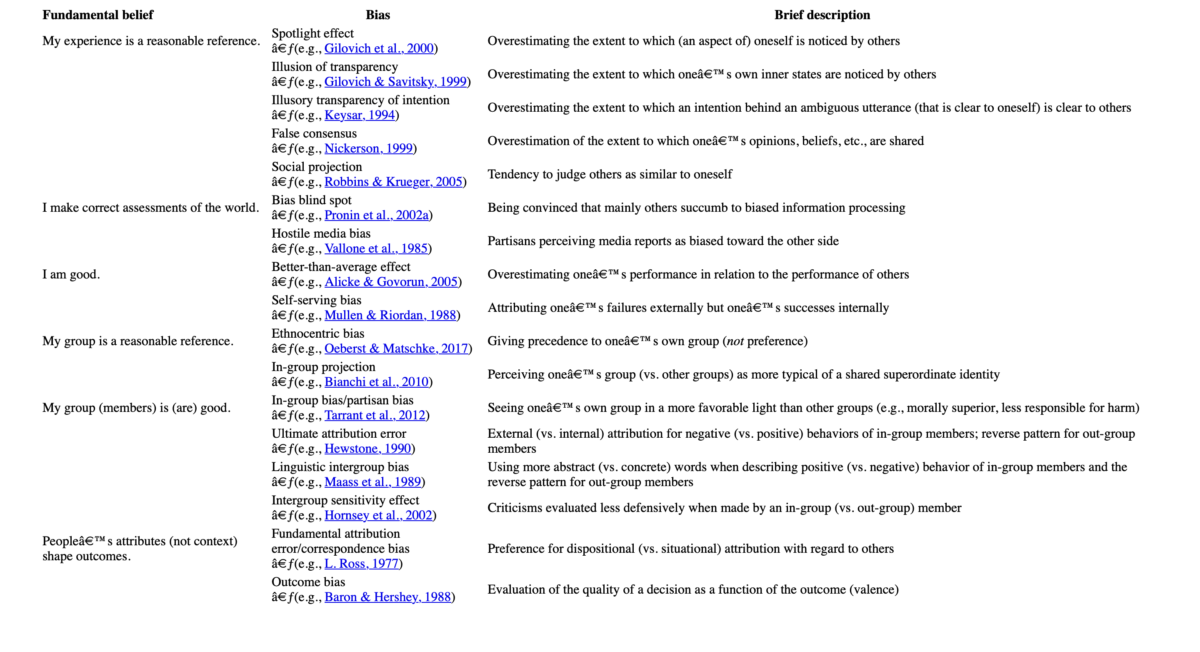Lobbyists are impacted by bias. Either their clients/members or they have a worldview that they bring to the consideration of an issue. It is normal and it harms your chances of winning.
This paper, ‘Toward Parsimony in Bias Research: A Proposed Common Framework of Belief-Consistent Information Processing for a Set of Biases’, (link) suggests that all cognitive biases come down to one of a handful of fundamental beliefs together with confirmation bias.

Source: https://journals.sagepub.com/doi/epdf/10.1177/17456916221148147
If you understand your biases, and we all have them, you’ll be able in a better place to avoid acting on them.
Some common biases I come across are:
- Cultural Group Think: A group of fellow travelers believe it to be true, so it must be true. No one could ever act against our worldview.
- Political Group Think: All we need to do is get one political family to back us, usually the one we belong to, and we will win.
- The Roger Helmer effect: I’ve found someone who agrees with my worldview. He represents the political mainstream and we will now win.
- My cause is right/just: People will come around and see that I’m right and they are wrong.
- An education bias: If only they understood the issue as clearly and well as we do, they’ll change their mind.
- On information overload bias/ cognitive waterboarding: More information is the only way to go. If we give them more information, they’ll understand it.
- A basis against simplicity: Decision makers can only benefit from the in-the-weeds explanation. We won’t simplify this for a busy non-expert who is making the decision.
- A basis against clarity: Long position papers, without visuals, in font 10, will force the reader to focus and understand what we sent.
- A bias against the solution. Tabling a solution that takes the issue off the table is an admission of defeat. Better keep the workable solution hidden in case it is found out.
- A bias against action. Spend time in internal meetings and don’t reach out to the people drafting and making the decisions.
If you have any other biases that you or others suffer from, please let me know.